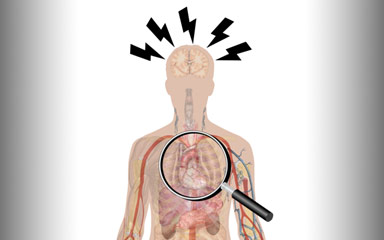Autonomic Dysfunction in Experimental Epilepsy: Potential Mechanisms for SUDEP
The possibility of reducing the number of deaths attributed to SUDEP by the reduction of seizure magnitude and frequency motivates this research.

The autonomic nervous system controls involuntary bodily functions and, when impaired by disease or physical injury, can lead to neurological disorders such as epilepsy. Epilepsy is a disorder that is characterized by spontaneous seizures with a wide range of symptoms. Sudden unexpected death in epilepsy (SUDEP) is the most serious complication of seizures. Currently, the reduction of seizure magnitude and frequency are the best methods of decreasing the risk of SUDEP. The CID is collaborating with Professor John Jefferys of Oxford University to characterize the mechanisms leading to SUDEP. Due to the spontaneous nature of epileptic seizures, bio-signals must be continuously monitored using the CID?s Bionode, a fully implantable and wireless device.
Data on the neurological, cardiac, and respiratory systems of rats is collected before, during, and after epileptic seizures. This information is transmitted to a computer via a base station where it is processed. The nervous system is then therapeutically stimulated based on the bio-signals received. A better understanding of the potential mechanisms for epilepsy and SUDEP has the potential to improve and save thousands of lives every year.
- Project Researchers: Dan Pederson